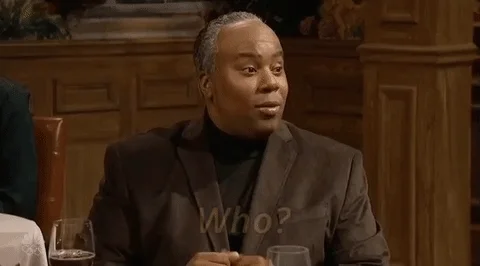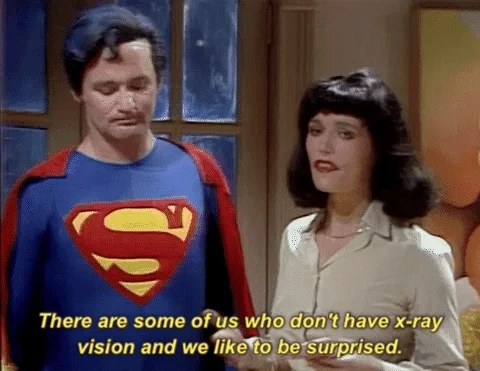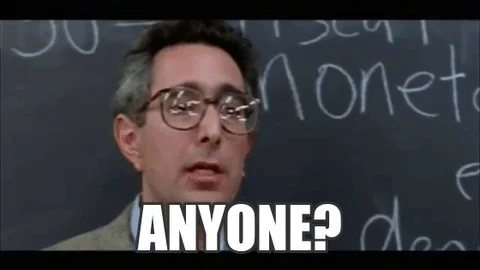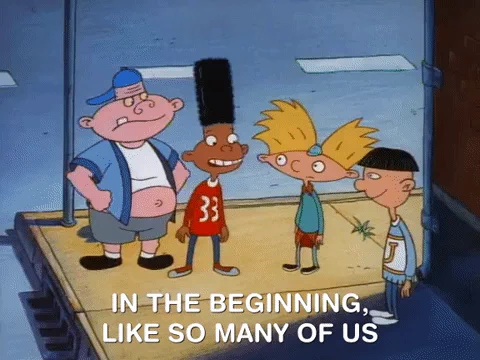
This logo isn't an ad or affiliate link. It's an organization that shares in our mission, and empowered the authors to share their insights in Byte form.
Rumie vets Bytes for compliance with our
Standards.
The organization is responsible for the completeness and reliability of the content.
Learn more
about how Rumie works with partners.
Do you know the difference between "someone" and "anyone"? Does it matter which word you use?

Do you know what an indefinite pronoun is?
These words are examples of indefinite pronouns. They're one of seven types of pronouns. It can be easy to confuse different types of pronouns.
Here are some examples of indefinite pronouns to help you understand these pronouns better.
What is an indefinite pronoun?

When we talk about pronouns, we use of definite pronouns to explain a specific person or thing.
Examples: I, me, mine, myself, she, her, hers, herself, we, us

Indefinite pronouns are different: they don't explain a specific person, thing, or amount.
Examples: all, any, anyone, everyone, everything, few, many, nobody, none, one, several, some, someone
I know they hired someone in our department. (unknown person 👤)
Most of the cakes have been eaten at the party. (general amount 🍰)
Nothing would cheer him up. He was upset all day. (absence 😔)
How to use indefinite pronouns

Subject: Someone left their phone at the library
Object: He found someone to fix his laptop
Quiz
Choose the correct sentences.
"Some" and "more" refer to a greater number of individuals and should take plural form.
Singular indefinite pronouns
another
She had a party dress but decided to buy another. 🎉
(She didn't like the first dress, so she picked a different dress.)
anyone
Is anyone interested in practicing piano? 🎹
(Are there people who have an interest in practicing the piano?)
anything
You can do anything you want. ✨
(You can choose to do whatever you like.)
each
He gave each of them a flower. 🌺
(Every person got a flower from him.)
enough
She didn't read enough to pass the exam. 📚
(She didn't read all the necessary materials to pass the exam.)
everything
Is this everything you'll buy today? 🛍️
(Have you finished shopping for today?)
less
Remember: less is more. 👍
(Keeping things simple can be better.)
little
Little did I know back then. 🤦♂️
(Back then, I didn't know what I know now.)
neither
Neither of you knows how to swim. 🏊♀️
(Two (or more) people can't swim.)
no one
No one has asked for her advice. 💭
(Her advice is not needed.)
nothing
Nothing has been cleaned properly. 🧹
(Things haven't been cleaned properly.)
something
The kids drew something on the wall. 🖍️
(The kids made a picture on the wall.)
Anyone = any person
Anyone can attend the university if they pass the entrance exam. 🏫
(The university is open to all people who want to study.)
Someone = a specific person
They are hiring someone in the finance department.💰
(They need a person who has knowledge in finance, they can't hire any person.)
Quiz
Choose the correct sentences.
"Either" and "everyone" should take singular form.
Plural indefinite pronouns
both
Have you read both of the books? 📖
(Did you read these two books?)
a few
The cakes are so delicious, I ate a few pieces. 🍰
(I ate more than one piece of cake.)
fewer
Fewer have attended the festival because of the rain. 🌧️
(A smaller number of people attended because of the rain.)
many
We sold our old clothes, many were in great condition. 👚
(A lot of the clothes we sold were in great condition.)
others
Are the others late for the meeting? 📊
(Some people may arrive late.)
several
Several of them took the wrong path in the forest.🌳
(A number of people took the wrong path in the forest.)
Quiz
Choose the correct sentences:
"Some" and "most" should take plural form.
Singular or plural indefinite pronouns
used as singular or plural
take a singular or plural verb

List of singular or plural indefinite pronouns with examples:
all
singular: All I want is a quiet place to relax. 🌄
(I want only one thing: a quiet place to relax.)
plural: All of his brothers work in the army. 🪖
(Every brother in his family has a job with the army.)
any
singular: Is any of the water left? 💦
(Is there water to drink?)
plural: Are any of the apples any good? 🍎
(Do some of the apples taste good?)
more
singular: More is needed on this project. 💼
(Extra resources are needed for this project.)
plural: More are running at the marathon. 🏃♀️
(A greater number of people are running in the marathon.)
most
singular: Most of the work is complete. 👨💻
(They finished the majority of the work.)
plural: Most of the cakes are already gone. 🍰
(They ate the majority of the cake.)
none
singular: None of the pie was eaten. 🥧
(They didn't eat the pie.)
plural: None of the students finished their assessment. 📄
(The students didn't finish their assessment.)
some
singular: Some of my makeup has faded. 💄
(The makeup is starting to wear off.)
plural: Some of the students have arrived early. 🧑🎓
(Few students have arrived early.
such
singular: Such is the beauty of nature. 🏞️
(This is the beauty of nature.)
plural: Such are considered to be the best in their field. 🏆
(These people are considered to be the best in their field.)
Take Action

This Byte has been authored by
Iulia Musat
L&D Admin
BA

